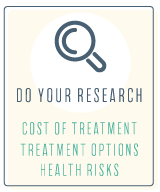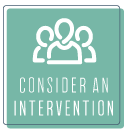
As many parents can tell you, you never stop loving—and looking after—your child, regardless of their age. Though the spectrum of these things may change over time and as your child ages, most parents would agree that they’re still actively concerned about their son or daughter’s well being. Watching your child, whom you’ve nurtured since birth, within a compromising or dangerous position can be heart-rending, especially if this situation is one that revolves around substance abuse or addiction.
Understanding How An Addiction Changes A Person
When confronted with an adult child who abuses substances, it may be helpful to understand how drugs or alcohol can affect a person who engages in these harmful behaviors. Drugs and alcohol both contain various toxins and chemicals that can greatly impact a person’s brain, effectively rendering portions of their judgement and decision-making below average. In addition, many substances may make a person overly emotionally, volatile, and even aggressive.
Oftentimes, a person may struggle to even see or admit that they have an issue with substance abuse, let alone an addiction; for this reason, many suffers of substance abuse disorders may also be heavily crippled by denial. Further compounding this, is that fact that adult children are more apt and capable of reasoning and deflecting within a conversation, in comparison to a younger child, thus making it even more difficult to effectively have a conversation about a perceived circumstance of abuse or addiction.
As a parent, it may be difficult to engage your grown child in a way that elicits the need for treatment. Though you may tell yourself that because they are an adult, that it is not within your role to voice your concerns, nothing could be farther from the truth—regardless of their age, there are times when a child needs their parent, especially when they are in dire need of treatment.
Effective Strategies For Aiding Your Adult Child Towards Treatment
Though recovery is a process, sometimes it may feel like the longest process is actually the time spent working towards getting help for a person. Though this period may be difficult, and at times very emotionally draining, take heart—it is worth it.
In order to get your child there, it can be helpful to understand certain factors prior to even approaching them about your concerns. To begin, choose a time and place that is neutral, one without pressures or distractions. Though you might think it advantageous to have the conversation while they’re under the influence, so that it can be an example, this can actually be widely detrimental due to many of the reasons we listed above. Drugs or alcohol may make your child mentally or emotionally unstable, tensions may rise, and they may not be able to fully reason out or process what you’re saying.
Are you or a loved one suffering from addiction?
Don't wait, get the best treatment options today
Call Now: (833) 473-4227Once you’ve established this setting, it is a good idea to form a plan. This gives you greater confidence and keeps you on track and centered, so that the conversation has maximum impact. It can be difficult to talk to a person with an addiction, so we’ve outlined some pertinent factors to consider and implement within your plan. Though some of these may not seem like active measures towards physically moving a person towards treatment, consider that a good dialogue often sets the stage for more direct action to occur. Within the complexity of addiction, moving mentally and emotionally towards help is equally important.
Avoid the “do as I say, not as I do” mentality — Addiction is caused by a variety of factors, one of which is genetics. Addiction often runs in families, and if you, yourself suffers from a drug or alcohol addiction, chances are that your child is both aware of and affected by it. For this reason, don’t pretend that it isn’t an issue. Be honest, but don’t go into too much depth—take the time to share with them your own struggles—fostering a sense of honesty can create a good groundwork for further conversations.

Don’t tell them how to live their life — As tempting as this may be, as it is something you have done in some capacity, as a parent, throughout your child’s life, be wary of telling them what to do. Human nature, especial within a child/parent dynamic can be to ignore such assertions or even to do the opposite. Instead, consider outlining to your child the impact that their addiction has had on you and other loved ones, this may actually resonate more heavily and incite greater change.
 Be mindful of your emotions — Addiction impacts the people around the user, so chances are, you’ve likely suffered at the hand of your child’s addiction as well. Because of this, and also due to the unique history between each parent and child, you may harbor strong emotions either towards the addiction, or even your child. Be careful of choosing your words wisely, monitoring your emotions, and being mindful of your child’s state of mind. Pointing fingers may drive your child away, creating more negative emotions that they could seek to staunch with drugs or alcohol. Remind yourself—addiction is a disease, it is not a failing of character or moral standing, thus you should not make your child feel this way.
Be mindful of your emotions — Addiction impacts the people around the user, so chances are, you’ve likely suffered at the hand of your child’s addiction as well. Because of this, and also due to the unique history between each parent and child, you may harbor strong emotions either towards the addiction, or even your child. Be careful of choosing your words wisely, monitoring your emotions, and being mindful of your child’s state of mind. Pointing fingers may drive your child away, creating more negative emotions that they could seek to staunch with drugs or alcohol. Remind yourself—addiction is a disease, it is not a failing of character or moral standing, thus you should not make your child feel this way.
Confront and change any enabling behaviors — Too often, when a family member suffers from addiction, their loved ones—including parents—may actually be enabling these destructive patterns or behaviors. You may mistakenly think that your actions are loving or supportive, when they are instead allowing, or enabling, your child to continue their substance abuse. An example includes giving your child money for rent or some other need, when the reality is that they will likely spend it on drugs or alcohol. It can be hard to do, but ending these behaviors will force your child to confront the repercussions of their actions, in a way that may help them to admit they have a problem.
Take care of your own needs — It can be easy to focus solely on your child’s situation, allowing your own needs to deteriorate. Seeking help for yourself, whether it be therapy, counseling, or a support group will not only help you to heal, cope, and learn to support your family member in a more beneficial way, but it will also provide an example of proactivity and illustrate the reality of the addiction within your lives. Substance abuse and addiction take a toll on family members; sometimes a person may not be able to admit to the impact these substances have on their life, however, they may be more apt to see the damage in those they love. A variety of groups exist to help family members cope with a loved one’s addiction, such as Al Anon.
Consider an assessment — Perhaps your child is at the initial stages of change and acceptance. Maybe they are beginning to admit that their drug or alcohol use is of concern, however, they have internalized to what extent. Being able to see the impact in black and white, as a result of a substance abuse assessment, may, in some circumstances be a helpful tool. Self-screening assessments exist, as do ones that may be administered by a family member or professional.
 Do your research — The field of addiction medicine and treatment is wide; take your time to research your child’s specific drug(s) of abuse, including symptoms and side effects of abuse and addiction, so that you know when to spot a problem. Also consider the various treatment options, the cost of treatment, and other important logistical concerns. Information often reigns supreme in these conversations and may at times come through with greater clarity than only emotional missives. This step is also essential too, should you succeed, or even begin to pique their interest in treatment—if they are receptive, you possess a better chance at success, if you are ready to offer them information and options.
Do your research — The field of addiction medicine and treatment is wide; take your time to research your child’s specific drug(s) of abuse, including symptoms and side effects of abuse and addiction, so that you know when to spot a problem. Also consider the various treatment options, the cost of treatment, and other important logistical concerns. Information often reigns supreme in these conversations and may at times come through with greater clarity than only emotional missives. This step is also essential too, should you succeed, or even begin to pique their interest in treatment—if they are receptive, you possess a better chance at success, if you are ready to offer them information and options.
Have a plan — Working in conjunction with the former, this concept is dually important. Should you child accept your sentiments and the reality of the situation, in the capacity that they desire treatment, it is important to have a plan of action at the ready. Left to think too long about their decision, they may again become infatuated with thoughts of using, pushing away the desire for treatment. Having made prior arrangements for transportation, child care, and even the facility, will also serve to expedite the process, ensuring your child begins treatment as soon as possible.
Ask questions — Don’t do all the talking. As much as it may be easy to slip into this role as a parent, strive to make time for your child to talk, or ask questions that prompt more than a “yes” or “no” answer. Maybe you know, or suspect, that your child suffers from a mental illness, either prior to, or because of, their addiction. Ask how they’re feeling—how are they struggling? You could also include any physical health concerns. Again, be careful not to lecture. Leading your child to consider their physical and mental health may make evident to them the risk and negative impact of their substance abuse.

Be prepared to talk about uncomfortable things — You may, within the course of your conversation, talk about subjects that are unexpected and even painful. Certain factors influence the risk for substance abuse and may also be responsible for it continuing. Your child may speak about sexual abuse, eating disorders, or even things they’ve done while under the influence that they are ashamed or frightened about. If you become angry or blameful, or exhibit another strong reaction, you may push your child away. It may be helpful to have a therapist or counselor at the ready, should a situation veer this direction, as these subjects may require a more professional dialogue.
Be patient and prepared for a less than ideal outcome — as much as you desire change, remember it takes time. Sometimes this first conversation may serve to plant an idea that grows over time. Your child may become dismissive, blameful, or even angry. These feelings can be hard to deal with. Remember, despite this, you are seeking to help them—try to maintain your own emotions and to not fire back with negative emotions, instead relaying a message of love, support, and patience.
 Consider an intervention — In many cases, you may have repeatedly tried to talk to your son or daughter about their addiction, only to be shut down or met with denial or anger. At a certain point, it may be a good idea to stage an intervention. Contrary to what some may think, an intervention is not necessarily, nor is it recommended to be, planned by friends or family members. Though these individuals have a crucial role within this, they may lend overt emotions or judgements to the process that could stave off your child accepting help and treatment. Instead, consider the aid of a professional—this individual may be a pastor, therapist, counselor, or even a person called an interventionist, a professional trained in preparing for and implementing interventions.
Consider an intervention — In many cases, you may have repeatedly tried to talk to your son or daughter about their addiction, only to be shut down or met with denial or anger. At a certain point, it may be a good idea to stage an intervention. Contrary to what some may think, an intervention is not necessarily, nor is it recommended to be, planned by friends or family members. Though these individuals have a crucial role within this, they may lend overt emotions or judgements to the process that could stave off your child accepting help and treatment. Instead, consider the aid of a professional—this individual may be a pastor, therapist, counselor, or even a person called an interventionist, a professional trained in preparing for and implementing interventions.
Let them go — This may be the hardest part. At a certain point, your child needs to learn how to stand on their own, while developing their own coping skills. Sometimes it may be beneficial for your child to go away to an inpatient drug rehab, or to cut off family ties for a period within treatment. We understand this may be hard, but stand firm and be supportive and encouraging.
Let Us Help You Find Help For Your Child
This is a lot of information to take in, and chances are, you may still feel overwhelmed and uncertain of what to do next. That’s why we’re here. Drugrehab.org can provide you with more resources, treatment options, and information on financial concerns or an intervention. Contact us today.


